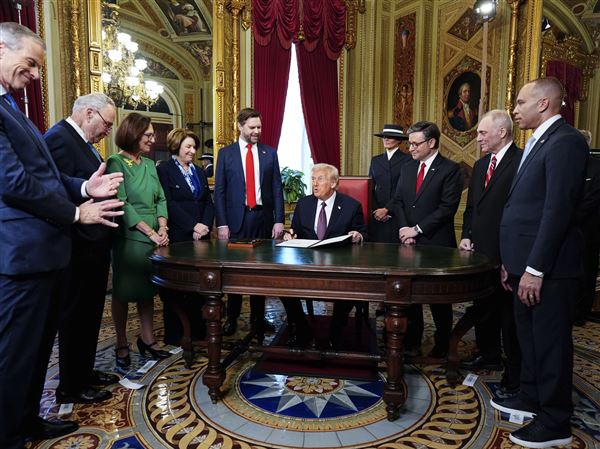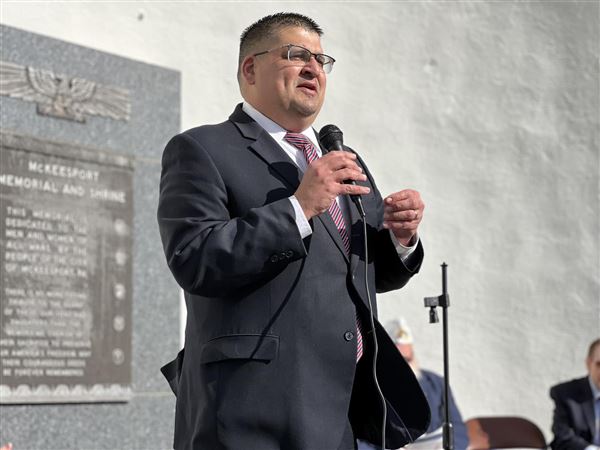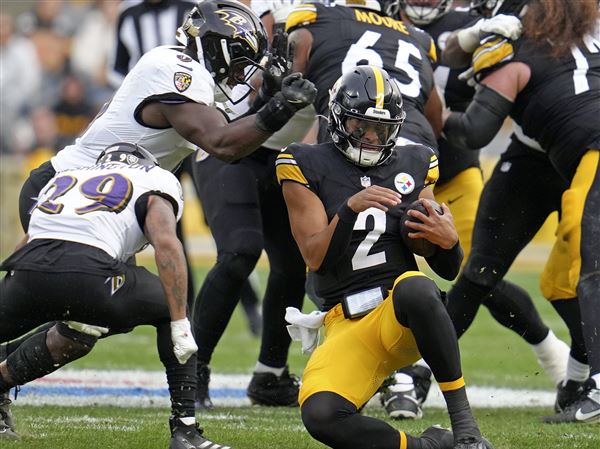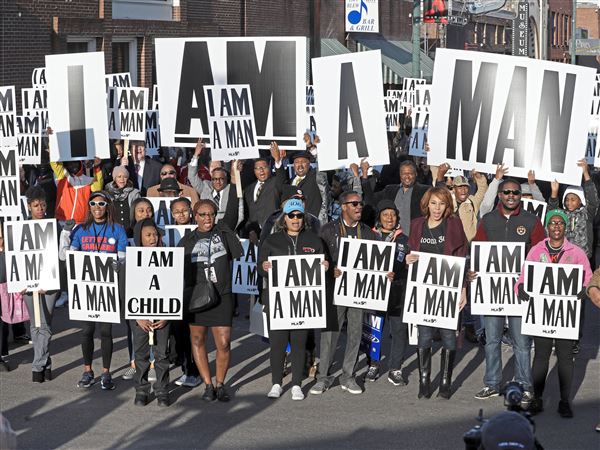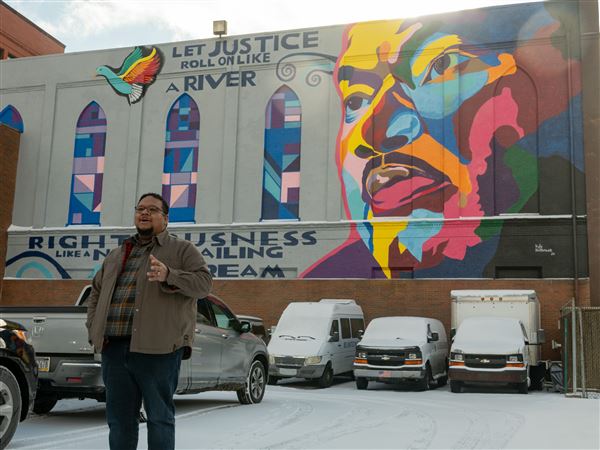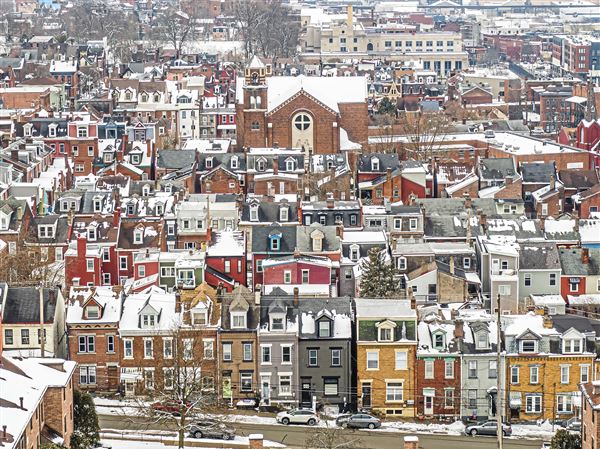Several years ago, when leaders at the 5,000-strong Tallowood Baptist Church in Houston realized they needed more space to expand their congregation, they considered building a new church on the outskirts of this sprawling Texas city. Instead, they opted for a less conventional site: a strip mall on the Katy Freeway.
Last year, Tallowood began services in a renovated 32,000-square-foot building that was formerly a Circuit City store. In addition to a 300-seat auditorium, the location now boasts 30 offices, a conference room that doubles as a day-care center and a Christian bookstore. "Not everyone comes to church for the architecture," says Larry Heslip, Tallowood's minister of education and administration. "Some people just like to be in a space that's usable."
A growing number of churches with huge congregations are growing so large that they need unconventional spaces in which to expand. Such churches -- typically Protestant with regular weekly attendance of more than 2,000 -- have doubled in the past five years to about 1,200, with almost a quarter of them in California and Texas, says Scott Thumma, professor of sociology of religion at the Hartford Institute for Religion Research in Hartford, Conn.
To make room for members, many churches are moving into commercial and retail spaces such as strip malls, big box locations and corporate campuses. Though often less spectacular in design than conventional churches, these buildings tend to be cheaper than new construction.
Large churches also see such properties as more desirable because they might attract potential churchgoers who are shopping at a retailer next door or across the street. And plenty of suburban property is available thanks to a commercial and retail push to both the fringes and downtowns of large urban areas.
But not everyone is giving thanks for the push into unorthodox religious real estate. The moves have sparked controversy, much as store-front churches did when they began popping up in the inner city years ago. Though protected by a 2000 federal law designed to shield religious institutions from discrimination in land use, churches acquiring commercial and retail property still find themselves under fire. Mr. Thumma says communities are often distrustful of large congregations trying to expand from a nearby town or city. They are reluctant to cede potential business real estate to nonprofits and leery of increased traffic and the demand a church might have for city services.
For three years, Christ Church of Montclair, N.J., has been locked in a battle with Rockaway Township, N.J., over its $14 million acquisition of Agilent Technologies Inc.'s 107-acre office and research facility there.
In addition to a 2,500-seat sanctuary, the church wants to build a K-5 school and recreational facilities for its congregation of nearly 5,000 people. But local officials, concerned about the impact of a crush of parishioners on city services and a potential loss of tax dollars, have so far blocked the project.
"What are we getting out of this?" says Louis Sceusi, mayor of Rockaway Township, which has a population of 22,000. Christ Church, in turn, has filed a federal lawsuit claiming religious discrimination.
Still, churches are gobbling up all sorts of property. In 2003, the Eastside Christian Church on the outskirts of Cincinnati moved into a former 1970s-era fourplex cinema on a beltway looping the city. Walls were knocked down, giving the church a sanctuary the size of a gymnasium. "Where people watched 'The Godfather,' they're now discovering God," says Pastor Jonathan Wolfgang. He says the move is helping the church connect to its suburban congregation, which has grown to 1,200 people, up from 200 a decade ago.
In Portland, Ore., Our Place Church converted part of a 54,000-square-foot technology warehouse and office complex into its new home in 2003, a particularly attractive property to church leaders because of a new Costco store across the street -- shoppers might discover the church as they're running errands.
And in perhaps the most high-profile move, Lakewood Church in Houston, which says it has the nation's largest congregation, last year relocated to the former Compaq Center, the 16,000-seat arena that was once home to the National Basketball Association's Rockets.
Moves by churches into retail spaces can create anxiety among parishioners and neighboring stores. In 2001, Memorial Drive United Methodist Church in Houston snapped up a nearby 75,000-square-foot strip center, using some storefronts for its youth and adult programming while maintaining tenants such as TJ Maxx and CVS Pharmacy. Charles Simmons, the church's senior minister, says the acquisition troubled a considerable number of the church's 6,600 members, as well as retailers who worried about teens roaming their stores. "It was a new experience," says Dr. Simmons.
Such fears never materialized, and today, parishioners and retailers say they coexist with few problems, though some retail employees say church members have expressed frustration with shoppers taking up parking spaces. Mr. Simmons says lack of parking is an issue, especially during the Christmas season, when he says Memorial Drive United moves some of its programming to its main church nearby to relieve the problem.
Retailers also balk at sharing space with churches because churches seldom draw as much traffic as restaurants and stores. But employees at a sporting goods store in Tallowood Baptist's new locale, called Tallowood Center, say business is good. Several doors down, a local restaurant chain plans to occupy the former site of a Macaroni Grill. "Churches are a natural feeder for us," says Geoff Herbert, director of operations at 59 Diner, which is expected to open next month.
Tallowood paid $7.5 million for the 12-year-old strip center in 2004, acquiring 80,000-square-feet of retail space and 390 parking spaces on about 6.2 acres across the street from a Ford dealer. Mr. Heslip says new construction would have cost considerably more, and older members might not follow the congregation to a new church. Tallowood spent $500,000 on the renovation of the Circuit City store, a project that presented few construction challenges. The older church, located less than a mile away from the new structure, is undergoing a $26 million expansion.
Tallowood's leaders believe the new campus will attract new followers. For younger members, the church plans to turn what was once the storage bay -- with 24-foot ceilings -- into basketball courts. At the rear of the building, a modified coffee bar is in the works where Mr. Heslip says folks will be able to come in off the freeway and watch sports network ESPN. And all the church services feature an electronic band, not a choir.
"It's the opposite of the old campus," he says. "And intentionally so."
First Published: April 26, 2006, 4:00 a.m.
